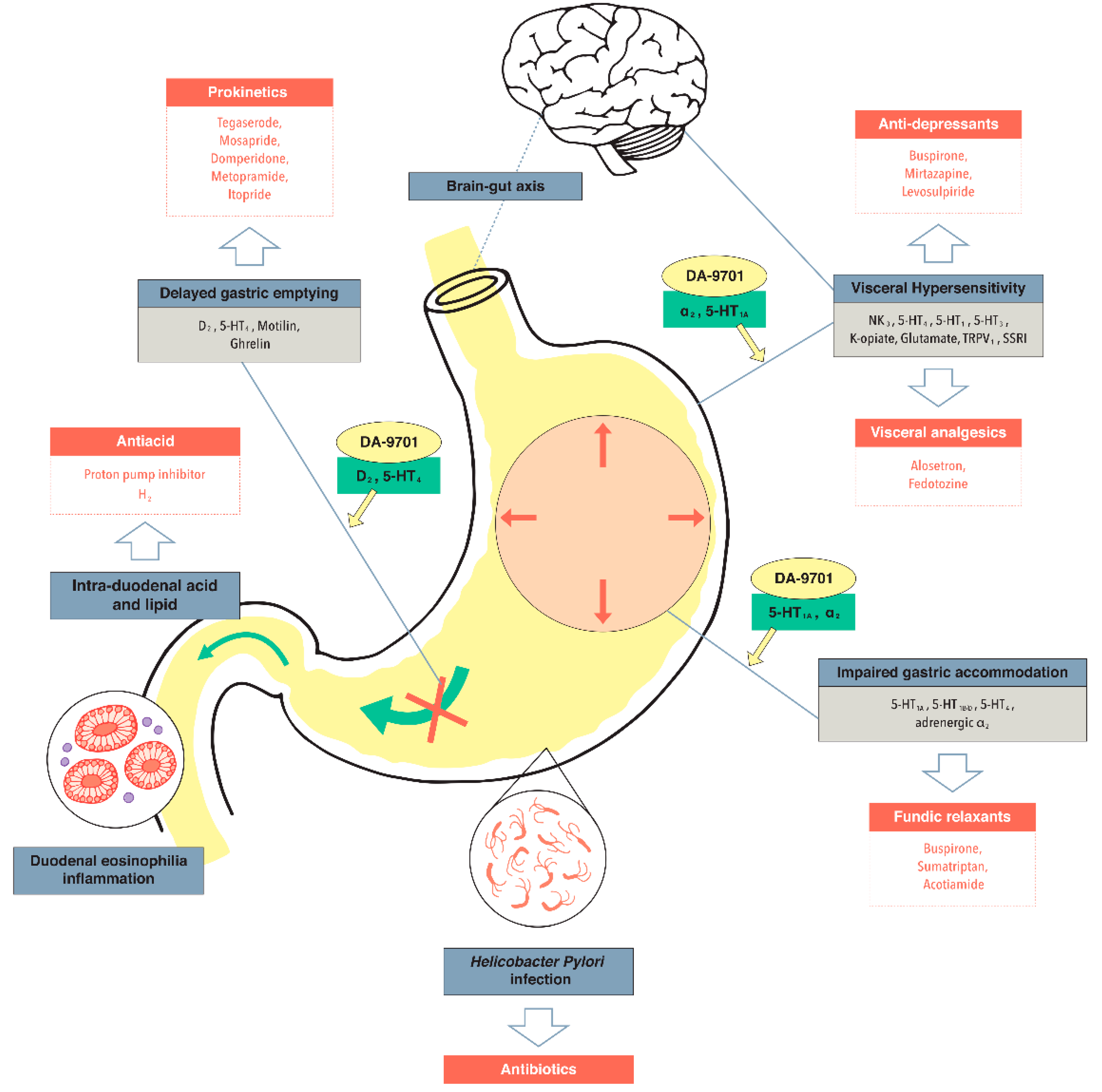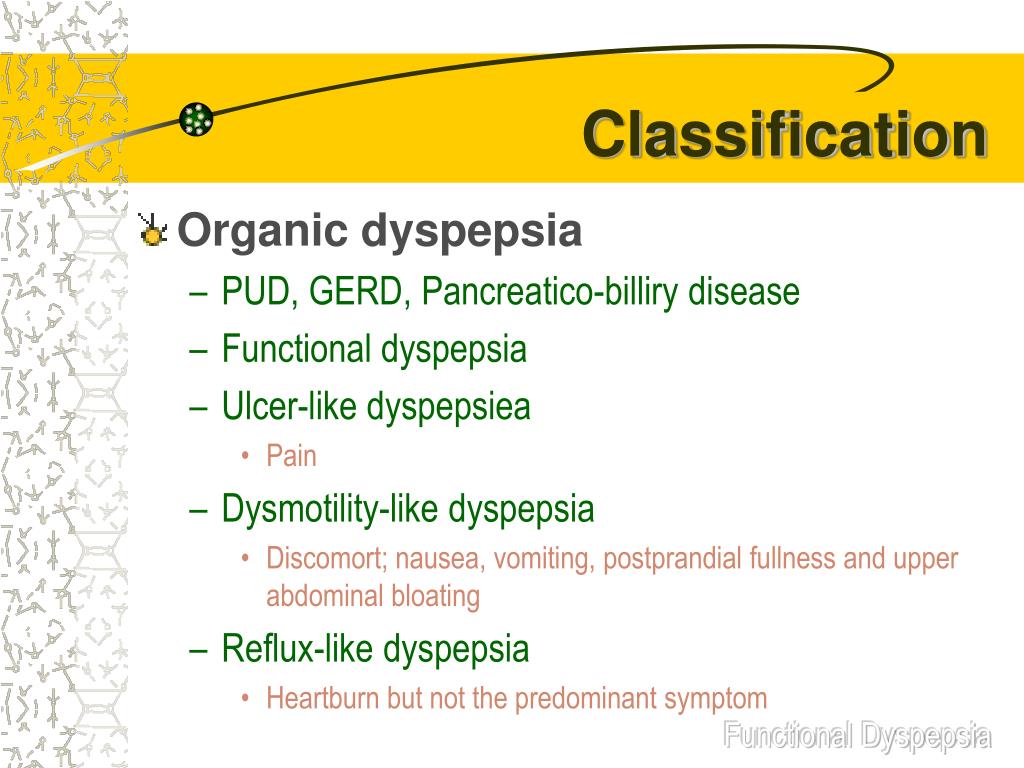

Indigestion can also commonly be caused by medications like NSAIDs, antibiotics, steroids and birth control pills. Heart disease, angina, heart attack (typically accompanied by other symptoms like shortness of breath, nausea, vomiting and jaw pain).Gastroparesis (a condition where the stomach doesn’t empty properly, common in diabetics).Stomach infections like Helicobacter pylori.Other possible causes of dyspepsia include medical conditions such as: ( 6) pylori) or another digestive medical condition may be the cause. You may be familiar with what indigestion is, but do you know specifically what causes indigestion? Most of the time the roots of dyspepsia can be traced back to food, drink, poor eating habits and lifestyle choices.


Abnormal stomach emptying and sub optimal contractions of the stomach are also believed to play a role in functional dyspepsia. In addition, about 40 percent of people with functional dyspepsia have displayed an “impaired accommodation” or an inability for their stomachs to relax as they should in response to consuming food. Some research has shown that there may be a genetic predisposition to functional dyspepsia. Some possible causes of functional dyspepsia include food allergies, inflammation of the stomach or duodenum, excessive acid secretion, medication side effects, psychological factors, or an infection with Helicobacter pylori. ( 4) When peristalsis doesn’t take place in an optimal fashion, this slows down the processing of food in the digestive tract and makes dyspepsia more likely.įunctional dyspepsia is a chronic improper functioning of the upper digestive tract with no observable abnormalities to explain chronic symptoms. Peristalsis is the involuntary contraction and relaxation of smooth muscles that propels food through the esophagus and intestines. Under normal conditions, there is a healthy peristalsis that takes place when we consume food. Many people experience heartburn along with dyspepsia, but these are two separate issues. ( 3) Some people experience dyspepsia daily or even at every single meal, while others only experience it on occasion. Indigestion or dyspepsia, also called upset stomach, is a general term used to describe physical discomfort or pain in the upper abdomen most commonly felt during or right after eating. Rather, dyspepsia is a set of commonly experienced symptoms like burping, bloating and nausea.
#Functional dyspepsia free#
Good news - there are some highly effective natural remedies for indigestion that are either free or very inexpensive and they’re all very easy to do.įirst off, in order to properly define dyspepsia, it’s important to know that it’s not a disease. But even if you only experience an upset stomach from time to time, you’ll still want to find out how you can avoid unwanted symptoms in the future. These terms describe the same set of symptoms, including things like bloating and stomach or upper abdominal pain.ĭyspepsia is said to affect over a quarter of the population - up to 30 percent to be exact! ( 2) So if you’re feeling dyspeptic (irritable due to indigestion), you definitely want to read this article in its entirety to see how you can prevent dyspepsia and also to see what causes it in the first place. What is dyspepsia? Well, aside from being a fancier word for upset stomach or indigestion, dyspepsia is defined as “any or all of the unpleasant symptoms that are associated with the malfunctioning of the digestive system.” ( 1) Medically speaking, the correct indigestion definition and dyspepsia definition are identical. Have you ever experienced an upset stomach after eating? Maybe it was accompanied by excessive gas and bloating? There’s actually a more scientific term for this common health problem.


 0 kommentar(er)
0 kommentar(er)
